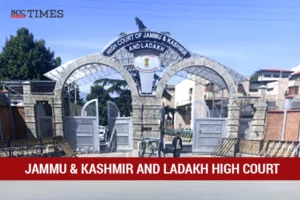Jammu & Kashmir and Ladakh High Court: While considering the instant petition wherein the petitioner challenged the impugned detention order against him contending that the grounds for his detention were vague in nature hence no prudent man can make an effective representation against said grounds, the Bench of Rajesh Sekhri, J.*, reiterated if grounds of detention furnished by the detaining authority are not capable of being intelligently understood and sufficiently definite, so as to enable a detenue to make an effective representation, then such grounds of detention may be termed as vague. In other words, the detenue may be able to make an effective representation if the details of the facts, on the basis of which conclusion is drawn by the detaining authority are furnished to him.
The detenue challenged the impugned detention order dated 15-09-2022 contending that grounds of detention were unreasonable and the impugned order suffers from non-application of mind; that he had not been apprised of his right to make representation; that he was neither served with detention order nor with the material referred to in the grounds of detention; that grounds of detention were supplied to him in a language not understandable or intelligible to him and that there is no nexus between the alleged prejudicial activity attributed to him and the security of the State sought to be achieved by his detention.
The respondents rebutted the contentions stating that the detaining authority had complied with the requisite constitutional safeguards while issuing the impugned detention order. The respondents further submitted that the detenue through his fiery speeches at every available opportunity exhorted the public to raise voice against the Government duly established by law. He was mainly responsible for organising anti-Government protests and is instigating the youth of Baramulla town to create an atmosphere of fear among the peace-loving people of the area. It was contended that the detenue had been nurturing the secessionist ideology and in-fact is motivating others to follow the suit; therefore, the detaining authority found it necessary and imperative to invoke the provisions of J&K Public Security Act to detain the detenue in order to preclude him from indulging in activities prejudicial to the security of the State.
Court’s Assessment: Perusing the rival contentions, the Court noted that the detaining authority had strictly complied with the mandate of the J&K Public Security Act along with other important requirements such as use of languages in the detention order that are fully understood by the detenue.
Vis-à-vis the allegations concerning vague grounds for detention, the Court noted that a plain reading of Art. 22(5) of Constitution reveals that it consists of two parts. While first part gives a right to a detenue to be furnished with grounds on which the order has been made as soon as may be, the second part provides a right to the detenue to be afforded earliest opportunity of making representation against the order of detention.
Examining the grounds as stated in the impugned detention order, the Court pointed out that as regards to fiery speeches by the detenue, the detaining authority failed to provide relevant details, as to when and where the detenue made such speeches and organised anti-Government protests. Furthermore, the Court pointed out that detaining authority also failed to provide specific details of separatists’ organisation, outfit or the grid, with which detenue is allegedly associated. It was also pointed out that the impugned detention order was conspicuously silent about the anti-social/anti-national elements, with which detenue is allegedly connected.
Upon plain reading of the grounds of detention, the Court noted that not even a single FIR had been registered against detenue for any activity alleged to have been committed by him in the past.
Since allegations against the detenue are general in nature, therefore, the Court found legal force in the submission that the detenue was prevented from making an effective representation against his detention. “The allegations against the detenue, being devoid of specific details, he was left with no option but to make general denial of the allegations that he is not involved in any such activity alleged to have been committed by him”.
The detaining authority had not furnished any detail on the basis of which it formulated the opinion that normal law of land did not prove sufficient to dissuade the detenue from indulging in activities prejudicial to the security of the State.
The Court pointed out that it appeared that the grounds of detention furnished to the detenue in the instant case are mere conclusions drawn by the detaining authority based on some material or reports received from the field agency, however, detaining authority has withheld said details for the reasons best known to it, but it prevented the detenue from making an effective representation, which is violative of Art. 22(5) of the Constitution.
Therefore, the Court found that the impugned detention order had mentioned grounds that were vague, therefore the same cannot sustain in the eyes of law. The impugned detention order was thus set aside, and the respondents were directed to release the detenue.
[Tariq Ahmad Napa v. UT of J&K, 2024 SCC OnLine J&K 283, decided on 30-04-2024]
*Judgment by Justice Rajesh Sekhri
Advocates who appeared in this case :
For petitioner/ detenue- N. H. Shah, Sr. Advocate
For respondent- Jahangir Ahmad Dar, GA


